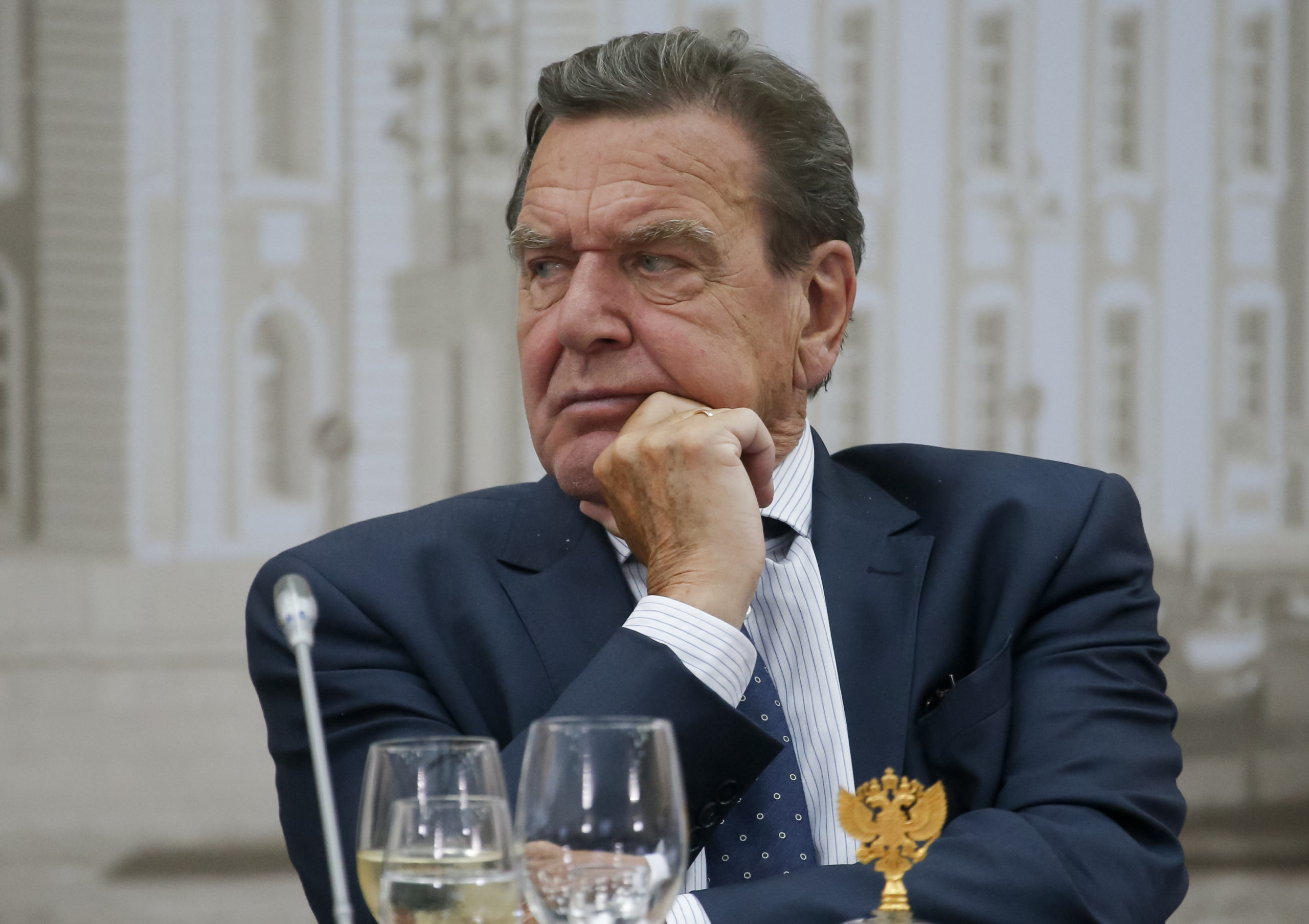BERLIN (AP) — Local officials with German Chancellor Olaf Scholz’s party met Thursday to consider calls to expel former Chancellor Gerhard Schroeder, but reached no immediate decision.
Schroeder’s longstanding ties to the Russian energy sector and refusal to distance himself fully from President Vladimir Putin after Russia invaded Ukraine have left his political standing in tatters.
A arbitration committee of the center-left Social Democrats’ branch in Hannover, where Schroeder lives, considered 17 applications from party members for proceedings against him.
Schroeder didn’t attend the hearing and also didn’t have a lawyer represent him, German news agency dpa reported. Local party official Christoph Matterne said after the hearing ended without immediate results that a decision will be made in the next three weeks.
Expectations of the ex-chancellor being kicked out aren’t high. In Germany, expelling party members is a complicated, demanding and often lengthy process that frequently fails.
The 78-year-old Schroeder has shown no sign of heeding calls from senior party figures to leave of his own accord. He was chancellor from 1998 to 2005 and was the Social Democrats’ leader from 1999 to 2004.
In May, Russian state energy company Rosneft said that Schroeder planned to step down from its board of directors, which he had chaired since 2017. He also isn’t taking up a nomination, made public a few weeks before Russia’s war in Ukraine started on Feb. 24, to join Gazprom’s board of directors.
Schroeder has had other ties to the Russian energy sector, chairing for years the shareholders’ committee of Nord Stream AG — the company that runs the Nord Stream 1 gas pipeline under the Baltic Sea — and heading the board of directors of Nord Stream 2, a second pipeline that Scholz’s government halted in February. He has been a longtime friend of Putin.
In May, German lawmakers agreed to shut down Schroeder’s taxpayer-funded office.
Schroeder has shrugged off the pressure, saying in comments to the daily Frankfurter Allgemeine Zeitung published Monday that he “won’t give up my opportunities to speak to President Putin” and questioning a focus on delivering weapons to Ukraine.
“I don’t believe in a military solution,” he said.

